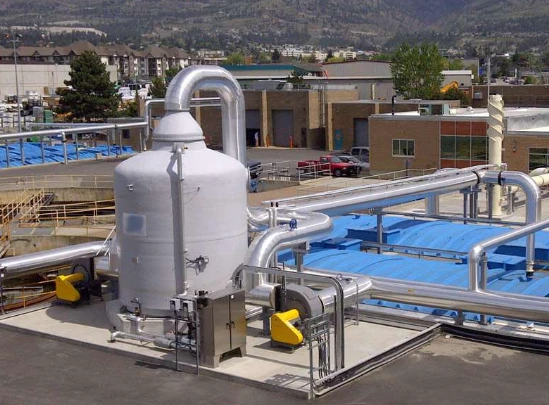
-
 Afrikaans
Afrikaans -
 Albanian
Albanian -
 Amharic
Amharic -
 Arabic
Arabic -
 Armenian
Armenian -
 Azerbaijani
Azerbaijani -
 Basque
Basque -
 Belarusian
Belarusian -
 Bengali
Bengali -
 Bosnian
Bosnian -
 Bulgarian
Bulgarian -
 Catalan
Catalan -
 Cebuano
Cebuano -
 China
China -
 China (Taiwan)
China (Taiwan) -
 Corsican
Corsican -
 Croatian
Croatian -
 Czech
Czech -
 Danish
Danish -
 Dutch
Dutch -
 English
English -
 Esperanto
Esperanto -
 Estonian
Estonian -
 Finnish
Finnish -
 French
French -
 Frisian
Frisian -
 Galician
Galician -
 Georgian
Georgian -
 German
German -
 Greek
Greek -
 Gujarati
Gujarati -
 Haitian Creole
Haitian Creole -
 hausa
hausa -
 hawaiian
hawaiian -
 Hebrew
Hebrew -
 Hindi
Hindi -
 Miao
Miao -
 Hungarian
Hungarian -
 Icelandic
Icelandic -
 igbo
igbo -
 Indonesian
Indonesian -
 irish
irish -
 Italian
Italian -
 Japanese
Japanese -
 Javanese
Javanese -
 Kannada
Kannada -
 kazakh
kazakh -
 Khmer
Khmer -
 Rwandese
Rwandese -
 Korean
Korean -
 Kurdish
Kurdish -
 Kyrgyz
Kyrgyz -
 Lao
Lao -
 Latin
Latin -
 Latvian
Latvian -
 Lithuanian
Lithuanian -
 Luxembourgish
Luxembourgish -
 Macedonian
Macedonian -
 Malgashi
Malgashi -
 Malay
Malay -
 Malayalam
Malayalam -
 Maltese
Maltese -
 Maori
Maori -
 Marathi
Marathi -
 Mongolian
Mongolian -
 Myanmar
Myanmar -
 Nepali
Nepali -
 Norwegian
Norwegian -
 Norwegian
Norwegian -
 Occitan
Occitan -
 Pashto
Pashto -
 Persian
Persian -
 Polish
Polish -
 Portuguese
Portuguese -
 Punjabi
Punjabi -
 Romanian
Romanian -
 Russian
Russian -
 Samoan
Samoan -
 Scottish Gaelic
Scottish Gaelic -
 Serbian
Serbian -
 Sesotho
Sesotho -
 Shona
Shona -
 Sindhi
Sindhi -
 Sinhala
Sinhala -
 Slovak
Slovak -
 Slovenian
Slovenian -
 Somali
Somali -
 Spanish
Spanish -
 Sundanese
Sundanese -
 Swahili
Swahili -
 Swedish
Swedish -
 Tagalog
Tagalog -
 Tajik
Tajik -
 Tamil
Tamil -
 Tatar
Tatar -
 Telugu
Telugu -
 Thai
Thai -
 Turkish
Turkish -
 Turkmen
Turkmen -
 Ukrainian
Ukrainian -
 Urdu
Urdu -
 Uighur
Uighur -
 Uzbek
Uzbek -
 Vietnamese
Vietnamese -
 Welsh
Welsh -
 Bantu
Bantu -
 Yiddish
Yiddish -
 Yoruba
Yoruba -
 Zulu
Zulu
Enhancing Water Quality with Fiberglass Clarifier Solutions for Efficient Filtration
Understanding Fiberglass Clarifiers Innovations in Water Treatment
In recent years, the pursuit of sustainable and efficient water treatment solutions has gained immense importance, driven by the growing concerns over water scarcity and pollution. Among various technologies, fiberglass clarifiers have emerged as a significant innovation in wastewater treatment processes. Known for their durability, efficiency, and cost-effectiveness, fiberglass clarifiers are increasingly being adopted by industries that require reliable water purification.
What is a Fiberglass Clarifier?
A fiberglass clarifier is a type of water treatment system designed to separate solids from liquids, allowing for the clarification of wastewater. The construction material—fiberglass reinforced plastic (FRP)—offers several advantages over traditional materials like steel and concrete. Fiberglass's resistance to corrosion and its lightweight nature make it an ideal choice for both outdoor and indoor applications. These clarifiers are engineered to facilitate the settling of suspended solids, which eventually leads to more manageable effluent discharge.
How Does a Fiberglass Clarifier Work?
The working mechanism of a fiberglass clarifier revolves around the principle of sedimentation. Wastewater enters the clarifier and is evenly distributed across the surface. As the wastewater flows through the tank, suspended particles begin to settle at the bottom due to gravity. A compaction and sludge removal process occurs, where the settled solids are accumulated and subsequently removed from the system. The clarified water, on the other hand, flows out of the clarifier, ready for further treatment or safe discharge.
Key Benefits of Fiberglass Clarifiers
1. Corrosion Resistance One of the most significant advantages of fiberglass clarifiers is their resistance to chemical corrosion. Unlike steel counterparts, which can rust and degrade over time, fiberglass can withstand harsh chemicals and has a longer lifespan.
2. Lightweight & Easy Installation Fiberglass is significantly lighter than traditional materials like concrete and steel, which makes transportation and installation more manageable. This lightweight property also allows for the construction of larger systems that are easier to handle on-site, reducing labor costs.
3. Cost Efficiency While the initial investment in fiberglass clarifiers can be higher than traditional systems, the long-term savings are noteworthy. Reduced maintenance costs, thanks to the material's durability, and lower operational expenses lead to significant cost advantages over time.
fiberglass clarifier

4. Flexibility in Design Fiberglass can be molded into various shapes and sizes, allowing for customized solutions tailored to specific wastewater treatment needs. This flexibility makes it suitable for a wide range of applications, from municipal wastewater treatment plants to industrial facilities.
5. Reduced Footprint Many industries face space constraints, which make compact systems essential. Fiberglass clarifiers can be designed to occupy less surface area while maintaining high efficiency, proving beneficial for urban and industrial sites.
Applications of Fiberglass Clarifiers
Fiberglass clarifiers find utility in various sectors, including
- Municipal Wastewater Treatment Cities use fiberglass clarifiers to help treat wastewater before being released into natural bodies of water or reused for irrigation and industrial purposes.
- Industrial Processes Manufacturing plants leverage these systems to manage process water and ensure compliance with environmental regulations.
- Food and Beverage Industry Beverage manufacturers often implement fiberglass clarifiers to separate solids from liquids in their production processes, ensuring product quality and regulatory compliance.
- Mining and Metallurgy In mining operations, these clarifiers are crucial for managing tailings and processing water, thus minimizing environmental impact.
Conclusion
Fiberglass clarifiers are revolutionizing the water treatment industry by offering an efficient, sustainable, and cost-effective solution for clarifying wastewater. As industries increasingly recognize the necessity of effective wastewater management, the demand for innovative technologies such as fiberglass clarifiers is likely to grow. Their unique properties, combined with the adaptability to various applications, position fiberglass clarifiers as a vital component in the quest for cleaner water and a more sustainable future. In doing so, they play an essential role in protecting our natural water sources for generations to come.









